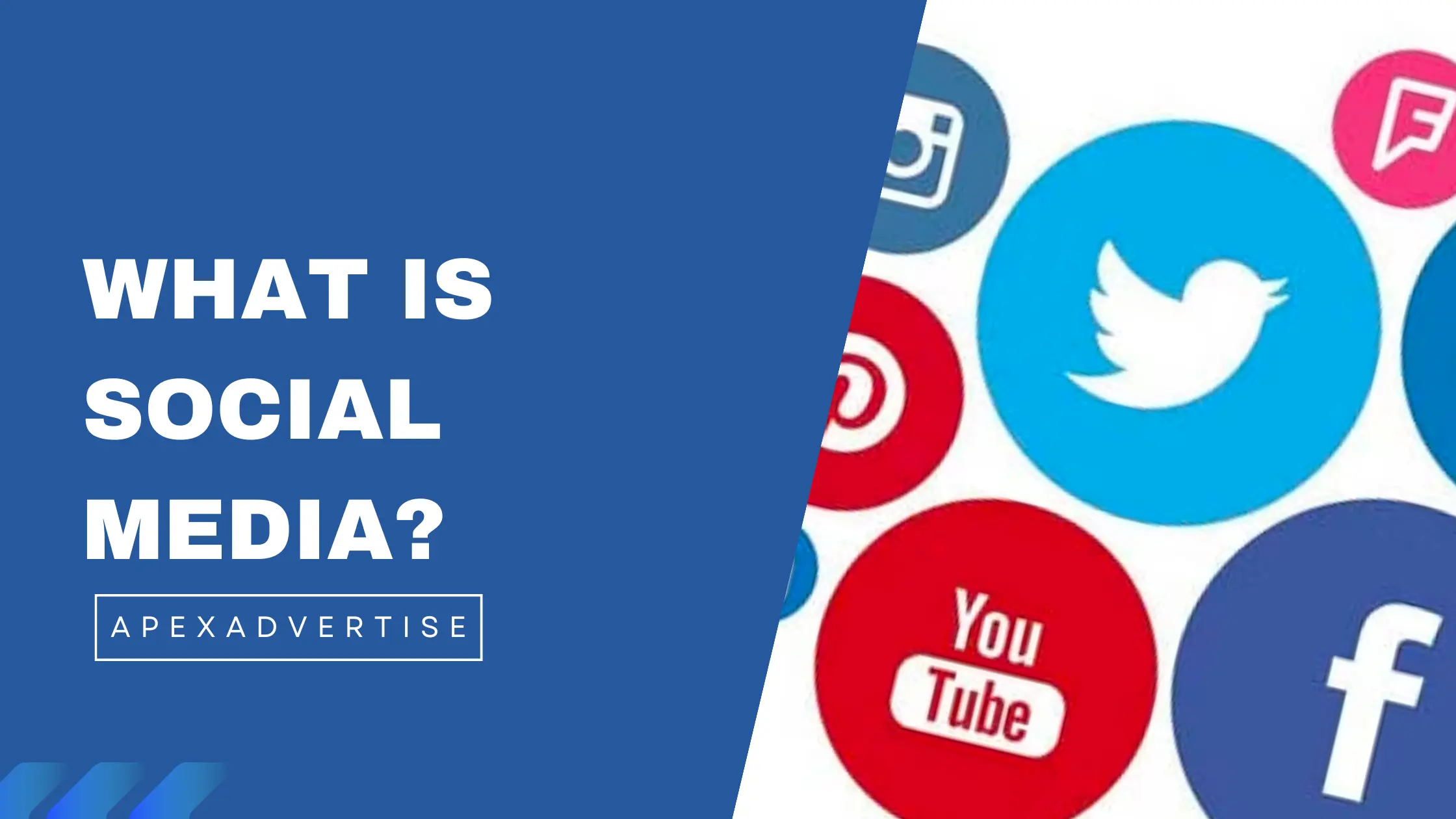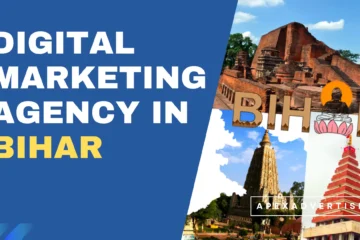Social media refers to online platforms and websites that allow users to create, share, and interact with content generated by themselves and others. These platforms facilitate communication, networking, and the sharing of ideas, information, and multimedia content such as photos, videos, and messages.
What is Social Media?
Social media refers to websites and applications that allow people to create and share content or participate in social networking. Some of the most popular social media platforms include Facebook, Twitter, Instagram, LinkedIn, TikTok, and Snapchat. Social media allows people to connect with friends and family, share photos, videos, and news, as well as join and participate in online communities and forums based on shared interests and hobbies. Additionally, social media has become an important tool for businesses to promote their products and services and engage with customers.
What is Social Media and its Importance?
Social media refers to the use of web-based and mobile technologies to turn communication into interactive dialogue. It enables people to create, share, and exchange information, ideas, and content such as text, photos, videos, and messages in virtual communities and networks.
Social media has become an important part of people’s lives and has significant impacts on society and the way we communicate and interact with each other. Some of the key benefits and importance of social media include:
- Connecting with friends and family: Social media allows people to stay in touch with friends and family members who live far away or who they don’t see regularly.
- Building online communities: Social media enables people to join and participate in online communities and forums based on shared interests and hobbies.
- Sharing and discovering new information: Social media provides a platform for people to share news, articles, and information with a wider audience and discover new perspectives and viewpoints.
- Marketing and promotion: Social media has become an important tool for businesses to promote their products and services and engage with customers.
- Facilitating political and social activism: Social media provides a platform for people to organize and participate in political and social movements, raise awareness about important issues, and bring about change.
- Improving access to education: Social media can be used to provide educational resources and opportunities, especially in areas where access to traditional education is limited.
In conclusion, social media has become a crucial aspect of modern society, offering many benefits and opportunities for individuals and businesses alike.
What Is the Use of Social Media?
Social media has a wide range of uses and applications, including:
- Communication: Social media allows people to communicate with friends, family, and other people they know, as well as participate in online communities and forums based on shared interests.
- Sharing information and content: Social media provides a platform for people to share photos, videos, and other types of content with a wider audience.
- Marketing and advertising: Businesses can use social media to promote their products and services, reach new customers, and engage with existing customers.
- News and information: Social media has become an important source of news and information for many people, as well as a platform for journalists and news organizations to share their content.
- Political activism: Social media provides a platform for people to organize and participate in political and social movements, raise awareness about important issues, and bring about change.
- Education: Social media can be used as a tool for education, providing access to educational resources, online courses, and other educational opportunities.
- Entertainment: Social media provides a platform for people to share and discover new forms of entertainment, such as music, videos, and memes.
- Job search: Social media can be used to network with potential employers and find job opportunities.
Overall, social media has become an integral part of modern life, providing a wide range of opportunities for communication, information-sharing, and self-expression.
Advantages and Disadvantages of Social Media
There is nothing in this world that does not have good and bad. That is, it can be said that it is good and evil in every particle, it is just an attitude to see and use it, similarly there is some good and evil in social media. Social media has both advantages and disadvantages, which include:
Advantages of Social Media
- Connecting with friends and family: Social media allows people to stay in touch with friends and family members who live far away or who they don’t see regularly.
- Building online communities: Social media enables people to join and participate in online communities and forums based on shared interests and hobbies.
- Sharing and discovering new information: Social media provides a platform for people to share news, articles, and information with a wider audience and to discover new perspectives and viewpoints.
- Marketing and promotion: Social media has become an important tool for businesses to promote their products and services and engage with customers.
- Facilitating political and social activism: Social media provides a platform for people to organize and participate in political and social movements, raise awareness about important issues, and bring about change.
- Improving access to education: Social media can be used to provide educational resources and opportunities, especially in areas where access to traditional education is limited.
- Convenience and accessibility: Social media is accessible from any device with an internet connection, making it a convenient way for people to stay connected and informed.
- Career development: Social media can be used to network with potential employers, find job opportunities, and showcase your professional skills and experience.
- Breaking down barriers: Social media helps to break down geographical and cultural barriers, allowing people from all over the world to connect and communicate with each other.
Disadvantages of Social Media
- Addiction and reduced face-to-face communication: Excessive use of social media can lead to addiction and reduce the amount of time people spend communicating face-to-face with friends and family.
- Cyberbullying: Social media can provide a platform for bullying, harassment, and cyberstalking, which can have serious negative effects on a person’s mental and emotional well-being.
- Spread of misinformation: Social media can spread false or misleading information quickly and easily, leading to confusion and misunderstandings.
- Privacy concerns: Social media platforms often collect and use personal information for advertising and other purposes, raising privacy concerns for users.
- Decreased productivity: Excessive use of social media during work hours can decrease productivity and focus.
- Comparison and negativity: Social media can foster a sense of comparison and negativity, as people are exposed to idealized versions of others’ lives and may feel inadequate or unhappy as a result.
- Mental health issues: Spending too much time on social media has been linked to increased anxiety, depression, and other mental health problems.
- Decreased physical activity: Spending too much time on social media can lead to decreased physical activity and a sedentary lifestyle.
Overall, it is important to be mindful of both the advantages and disadvantages of social media and to use it in moderation to maximize its benefits and minimize its potential drawbacks.
What are the 10 Most Popular Social Media?
Seeing the increasing technology and people connecting with technology, it is difficult to say which social media is the best. Still, in this digital world, there are some 10 social media that are the best in the eyes of the people. the 10 most popular social media platforms are:
- Facebook: A social networking platform that allows users to connect with friends, family, and other people they know in real life.
- YouTube: A video-sharing platform where users can upload, share, and view videos.
- WhatsApp: A messaging app that allows users to send text messages, make voice and video calls, and share photos and videos with friends and family.
- Instagram: A photo and video-sharing app that allows users to share visual content with friends and followers.
- TikTok: A short-video sharing app that allows users to create and share 15-second videos with music and special effects.
- WeChat: A messaging, social media, and mobile payment app that is widely used in China.
- QQ: A messaging and social media app that is popular in China.
- Skype: A video and voice calling app that allows users to make calls over the internet.
- Snapchat: A multimedia messaging app that allows users to send photos and videos that disappear after being viewed.
- Twitter: A microblogging platform that allows users to post short messages and interact with others through “tweets”.
Note that the popularity of social media platforms can change quickly, and this list may not be up-to-date. However, these platforms are among the most widely used and well-known social media platforms to my knowledge.



